Sacred Music at the Cathedral of St. Patrick
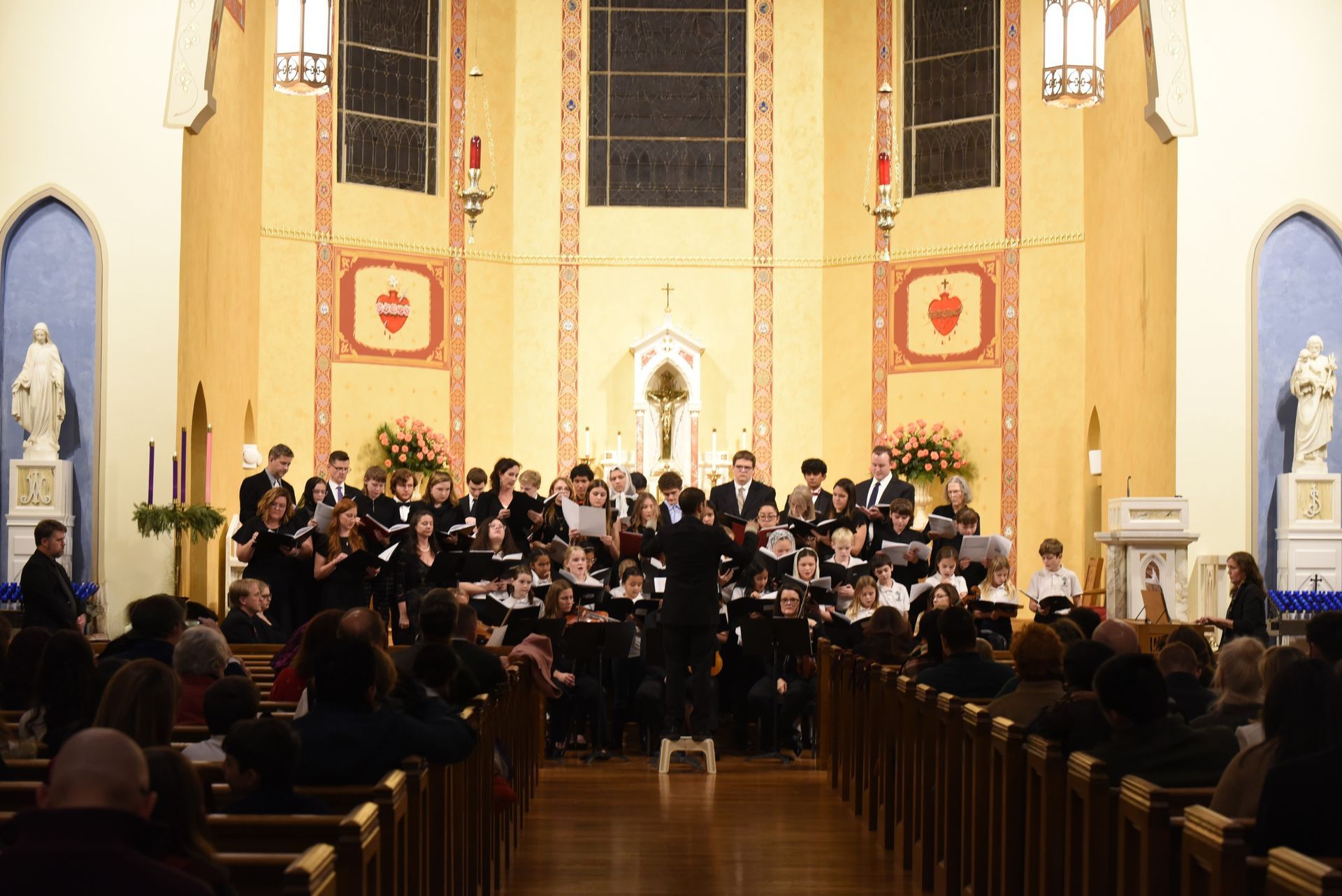
The Cathedral of Saint Patrick sacred music program is dedicated to the very best of the Catholic Church's musical patrimony, from Gregorian chant and Renaissance polyphony to choral masterworks of the modern era. Singers in the Cathedral Choirs strive to portray the truth of the Catholic faith through the beauty of music.
The Cathedral Choir
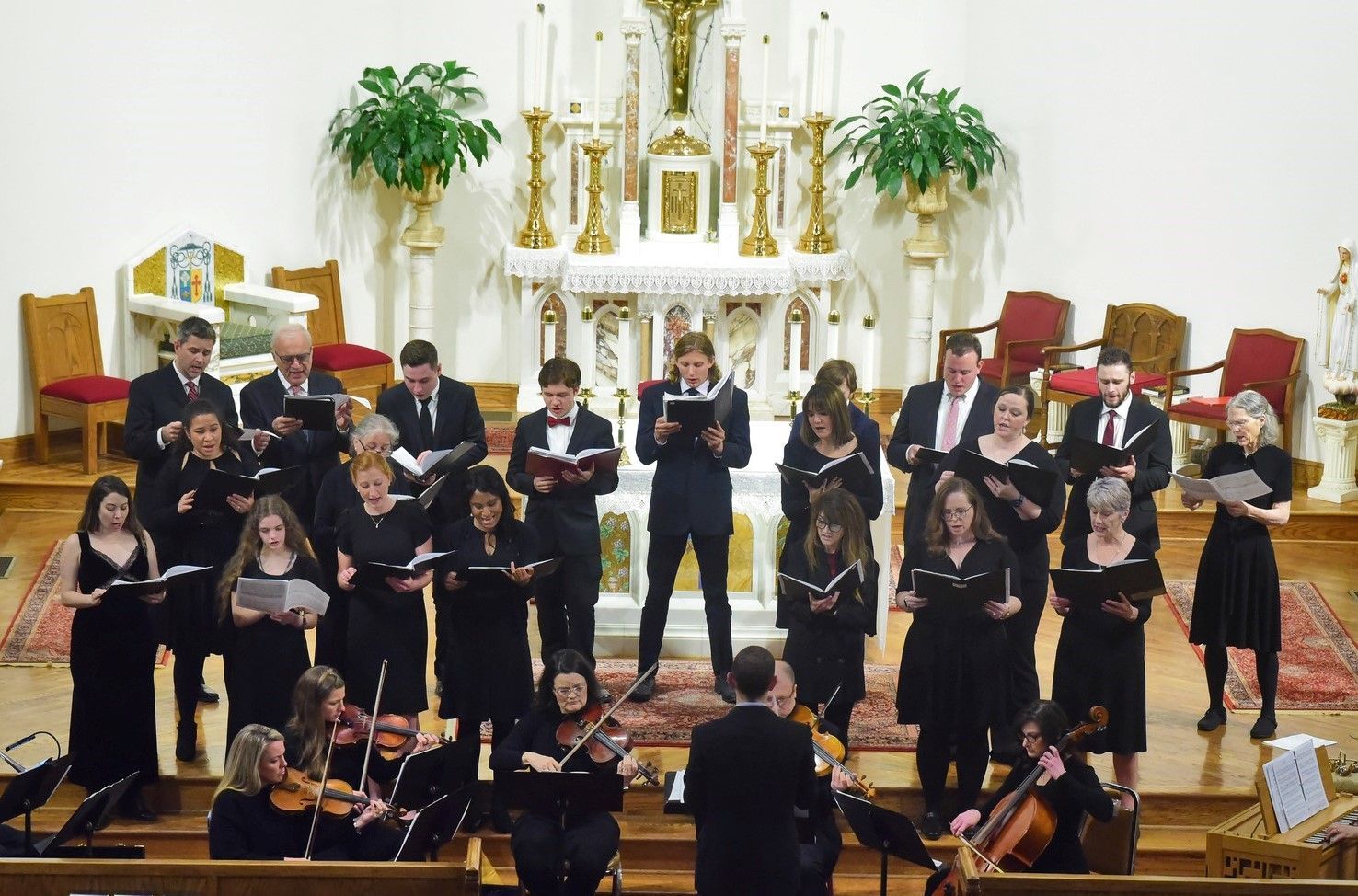
The Cathedral Choir, with members from high school age through adult, sings every Sunday at the 11:30 a.m. Mass, as well as on Holy Days and during the Paschal Triduum. Singers in this choir also take part in men's and women's Gregorian chant scholas Rehearsals are on Wednesday evenings from 7:30 p.m. – 9 p.m. The Cathedral Choir focuses on leading the congregation in song and singing the finest music from the sacred choral repertory. For more information, contact Gianfranco DeLuca at
gdeluca@stpatricks.org .
The Cathedral Children’s Choir
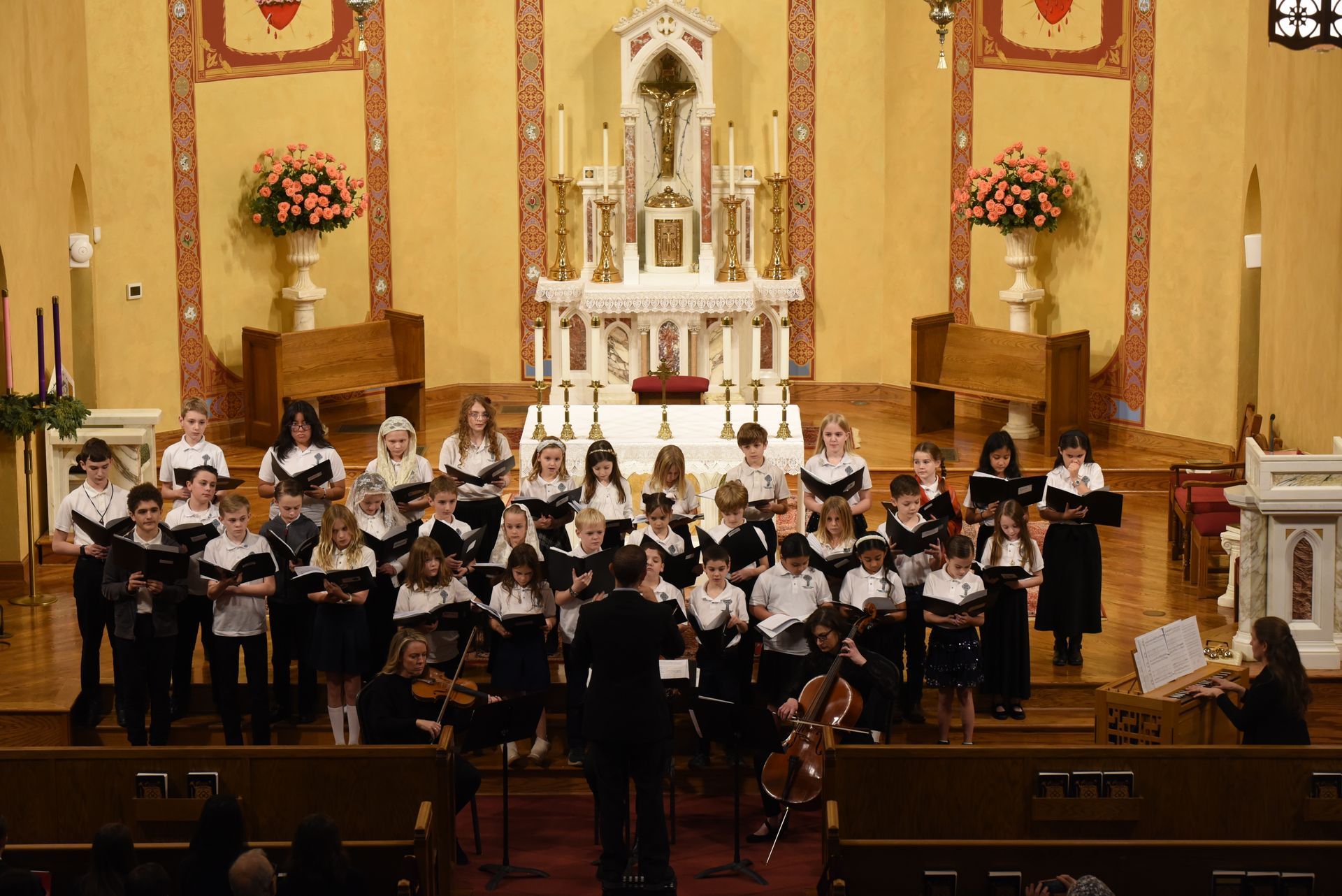
The Cathedral Children’s Choir is a treble choir for all children in grades 2-8. Children in this choir practice once a week and sing once a month for the 9 am Mass. The Cathedral Children’s Choir seeks to expose children to high-quality choral music, including Gregorian Chant, while being sure to have fun at the same time. The choir follows the Royal School of Church Music
Voice for Life curriculum, which focuses on vocal technique, music theory, and other musicianship skills. Families can choose from several weekly practice times: Tuesdays at 3 pm or 4:15 pm, Fridays at 3 pm, or Saturdays at 4:15 pm. Membership in this choir is open to children from all parishes in the Diocese of Charlotte. For more information, contact Gianfranco DeLuca at
gdeluca@stpatricks.org or click below to register for a practice time.
The Cathedral High School Choir
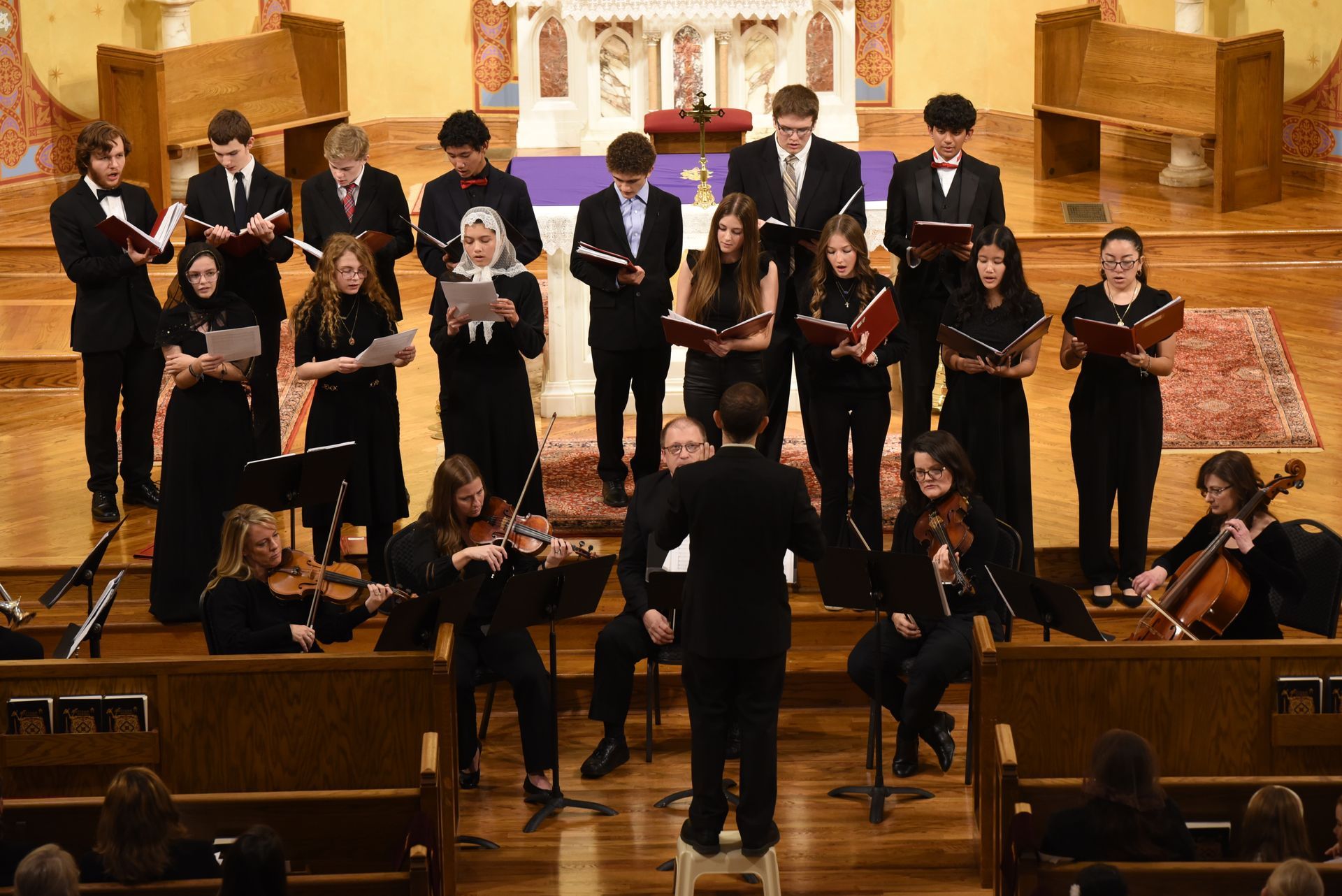
The Cathedral High School Choir is composed of young people in grades 9-12, or any younger boys with changed voices. The High School Choir serves to introduce teens to more standard SATB choral works. This group rehearses approximately once a month on Sunday afternoons at 4 pm, and sings for Saturday 5:30 pm Mass once a month. Membership in this choir is open to young people from all parishes in the Diocese of Charlotte. For more information, contact Gianfranco DeLuca at
gdeluca@stpatricks.org .
Summer Choir Camp
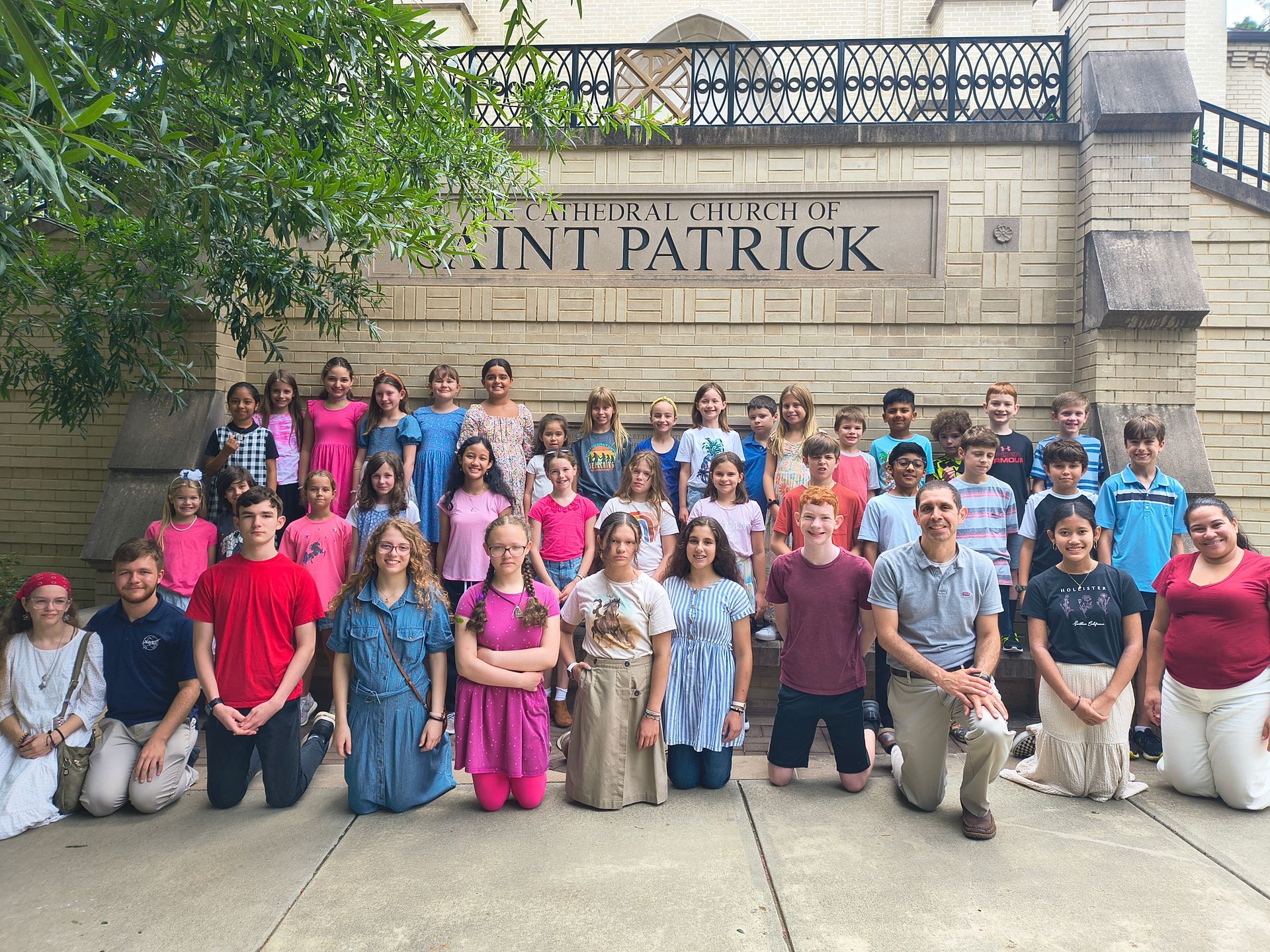
The Cathedral offers a weeklong choir camp each summer for rising 2nd-8th graders. Besides choral singing and singing for daily Mass, activities include games, crafts, learning about Gregorian chant, and music history. Contact Gianfranco DeLuca for dates and information on the next choir camp at gdeluca@stpatricks.org .
Cathedral Organ
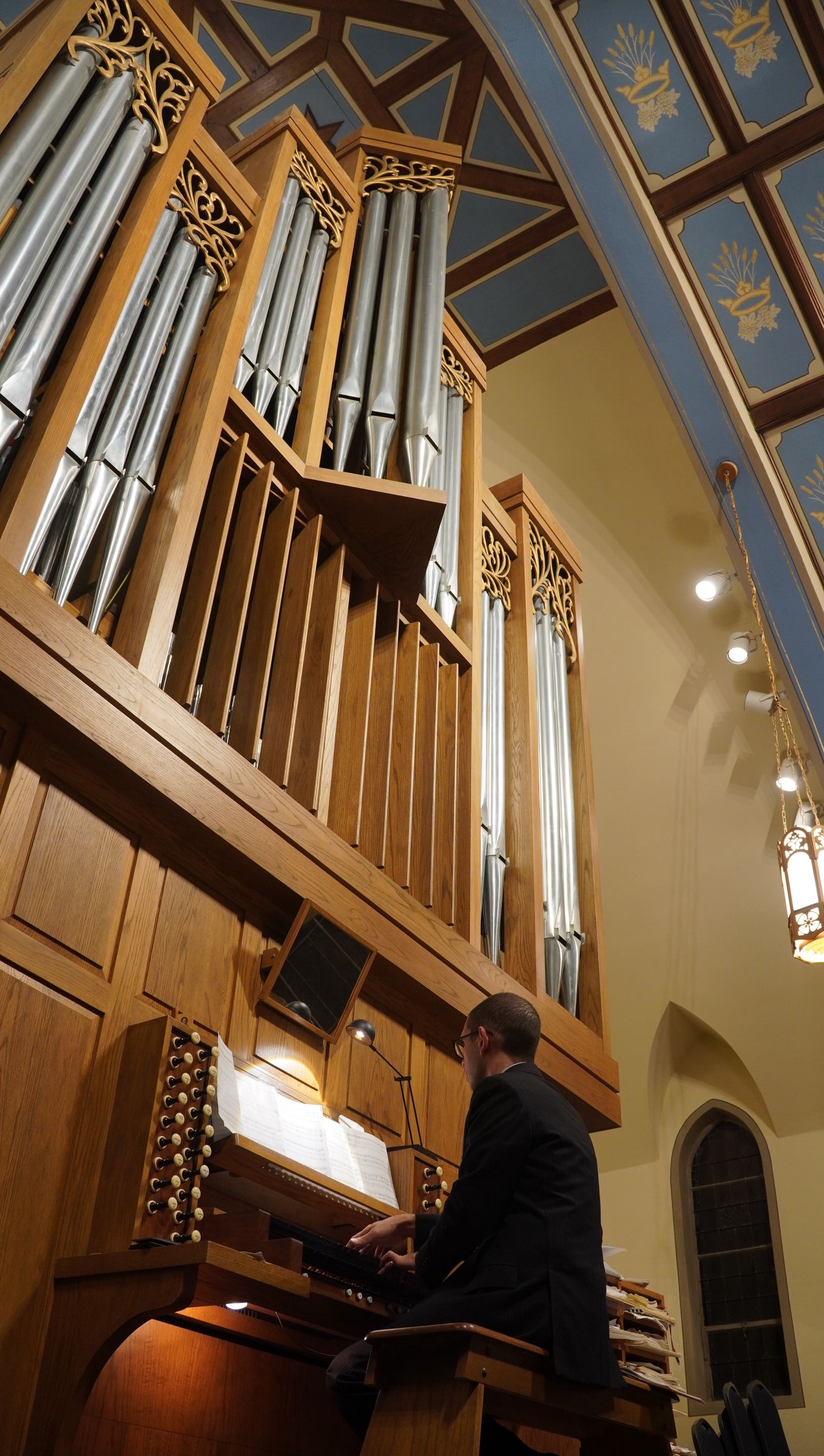
The Cathedral organ was built in 1980 by W. Zimmer & Sons of Charlotte. It is a two manual, 31 rank, mechanical action organ and is used regularly both for liturgies and for concerts.
Recent Recordings
The following are choral recordings made during recent concerts and liturgies at the Cathedral.
Cathedral Choir
Tantum Ergo-Marcel Dupré
Regina Caeli-Orlandus Lassus
Surrexit a Mortuis-Charles-Marie Widor
Caligaverunt Oculi Mei-Tomás Luis de Victoria
Ubi Caritas-Ola Gjeilo
Cathedral Choir and Cathedral High School Choir
Ego Flos Campi-Jacobus Handl
Cathedral High School Choir
A Babe is Born-Gustav Holst
Cathedral Children's Choir
Ave Maria-Marcel Dupré
O Open Wide the Gates-Christian Ludwig Boxberg
Ave Maria-Camille Saint-Saëns
Maria, Mater Gratiae-Camille Saint-Saëns
All Choirs
Magnificat in C-Antonio Caldara
Video from the 2024
Concert of Sacred Music for Advent and Christmas




